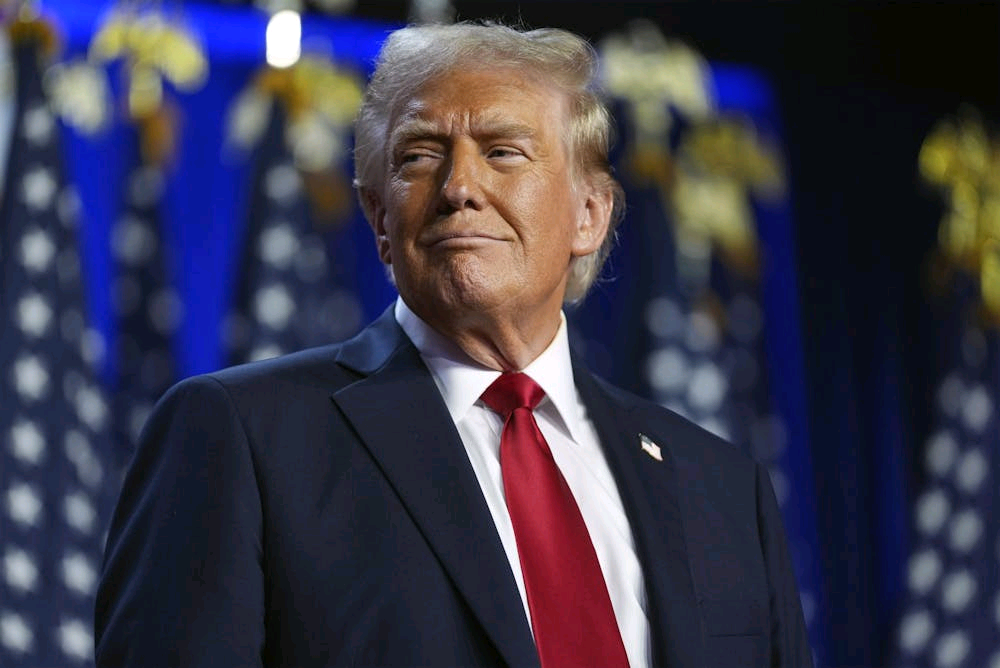In a 1988 interview on The Oprah Winfrey Show, Donald Trump, then a 42-year-old real estate mogul with no formal political role, shared a vision that has shaped his presidency decades later.
“I’d make our allies pay their fair share,” Trump said, accusing countries like Japan and Kuwait of taking advantage of the United States.
“We are a debtor nation… and yet we let Japan come in and dump everything right into our markets. It’s not free trade.”
He also criticised Kuwait, claiming its wealthy citizens benefited from U.S. military protection without giving anything back.
Now, as the 47th President of the United States, Trump is turning those old talking points into policy.
What has Trump done now?
On April 2, 2025, Trump announced a sweeping new tariff regime aimed at reshaping the global trade landscape. A 10% baseline tax has been imposed on most imports, with significantly higher tariffs on countries running large trade surpluses with the US — like China.
Chinese goods now face tariffs of up to 145%. China retaliated with 125% tariffs on US exports.
Trump said the aim is to make imported goods more expensive so Americans will buy more American-made products, revive local industries, and protect US jobs.
He’s also using the tariffs as a form of economic leverage — pressuring other countries on trade, migration, and national security.
What are tariffs?
A tariff is a tax slapped on goods imported from other countries. It’s essentially a fee foreign companies pay to sell their products in another country.
Governments use tariffs to raise revenue, protect local industries, or pressure other countries into changing their behaviour.
How do Tariffs Work?
Imagine a ₦100,000 shipment of cement from Dangote heading to Ghana. If Ghana imposes a 25% tariff, the importer there pays an extra ₦25,000 to the Ghanaian government, on top of the cement’s cost.
That extra charge either makes prices go up for local buyers in Ghana, or reduces the Nigerian company’s profit—possibly even making them consider exporting to another country instead.
Tariffs like this can vary: Ghana might charge just 10% on imports from big partners like South Africa, but up to 50% on products from smaller economies like Liberia — depending not just on retaliation, but on trade imbalances and economic priorities.
Trump says it’s to make foreign goods pricier so Americans buy US-made stuff instead, bringing factories and jobs back home. He’s also using tariffs as leverage — think pressuring Mexico and Canada to crack down on drugs and migration, or nudging China on trade practices.
How do Trump’s tariffs affect Nigeria?
Nigeria, Africa’s largest oil producer, relies heavily on crude oil for its export revenue — 90% of its foreign exchange comes from oil.
The newly announced U.S. tariff policy spares oil and gas exports. But it hits non-oil and agricultural products, valued at over ₦323.96bn, with a 14% tariff.
According to 2024 data from the National Bureau of Statistics, Nigeria earned approximately ₦4.49tn from oil and energy exports to the US last year — most of which is not affected.
However, the non-oil segment, including Fertilisers and urea (approx. 2–3% of exports), Lead ($82m), Agricultural goods like flour, live plants, and nuts are now at risk.
What is the Nigerian government saying?
Minister of Trade and Investment, Dr Jumoke Oduwole, acknowledged the risk to Nigeria’s export diversification drive.
“While oil has long dominated Nigeria’s exports to the US, non-oil products—many previously exempt under AGOA—now face potential disruption,” she said in a statement.
She warned that new 10–14% tariffs could hurt the price competitiveness of Nigerian goods in the US market, especially in the emerging value-added sectors Nigeria is hoping to grow.
In response to the escalating trade tensions and the potential impact of US tariffs on Nigeria’s economy, the Federal Government has inaugurated a committee to review the National Trade Policy of Nigeria 2002.
Could there be a silver lining?
Yes, says Dele Alake, Nigeria’s Minister of Solid Minerals Development.
“The prevailing barrage of tariffs initiated by the United States of America may well be a blessing in disguise for African countries. We need to organise our economic imperatives to ensure a balance of trade and strengthen intra-African trade among ourselves. The time is now,” he said.
He believes that if investors want Africa’s resources, they must invest in local factories, create jobs, and add value before exporting.
Alake criticised the long-standing model of exporting unprocessed raw materials from Africa — a practice he described as “pit to port.”
“That era can no longer continue,” he said.
The Punch

